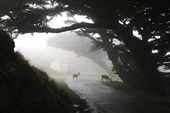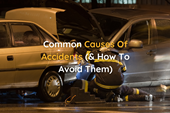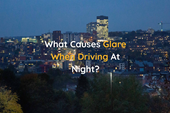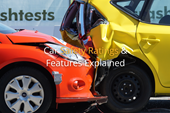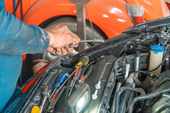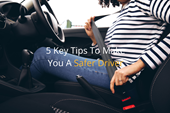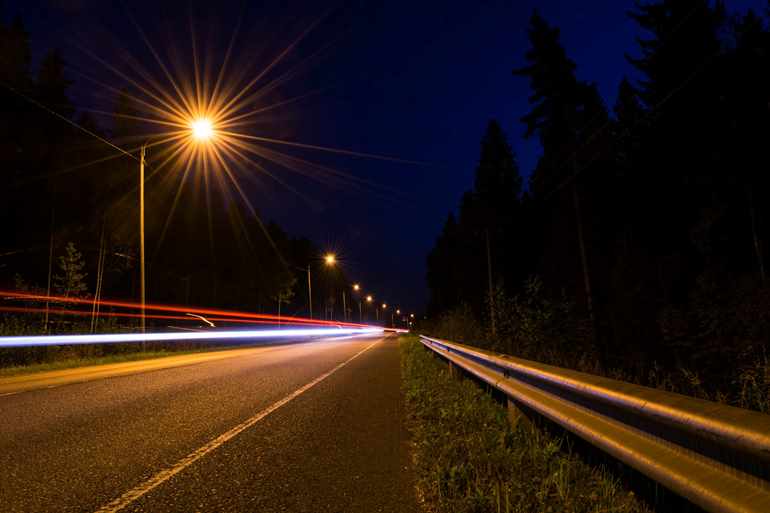
Tips for nighttime driving
Even the most skilled driver can face challenges on the road. If you are a careful driver, then you understand the difficulties that may occur when driving at night. Whether for a short or a long journey, you may be uncertain how to drive in the safest way. Here, we take a look at some top tips for night-time driving so you can feel more confident as you head out on the road.
First though, let's cover some of the night-time driving basics, with your most frequently asked questions.
What Should I Do If I'm In A Car Accident At Night?
As visibility is understandably lower at night, it makes sense to get to a safe location. If possible, move your car (and definitely yourself) to a safer, road-side spot. Put your hazard lights on as soon as you can to alert other drivers and reduce the risk of a further collision.
After that, the normal car accident procedure takes place, check for any casualties and call an ambulance if needed. You'll also need to exchange car insurance details too.
We've covered car accidents in much more depth in our blog: What Are The Main Issues Following A Car Accident?
Will My Car Insurance Cover Me For Night-time Driving?
In most cases, yes. However, there are some specialist insurance types which would exclude night-time driving, such as some policies that include a black box, or specifically discount for driving between certain hours (and often with no passengers). Our advice is to check your policy thoroughly before heading out on a night-time drive. Better yet, call your insurer and clarify it with them.
Remember, whilst most insurance covers night-time driving, insurance pay-outs on cars that are written off usually only cover the value of the car at the time, not your outstanding amount or the amount you paid. This is the case for driving at any time of the day.
Gap insurance can make up any shortfall between the amount you paid and the amount your insurer pays out. Something which could offer extra peace of mind.
Tips For Nighttime Driving
Check your lights and mirrors
Checking the condition of your car might seem like an obvious step before driving at night, especially if you don’t drive at night often. But this is a very important part of maintaining your own safety while driving, so even if things have been running smoothly make sure you check all of your lights. Your headlights are a given, but you should also check your fog lights, indicators, and brake lights are working. This reduces your chances of an accident.
Combine this with checking that your mirrors and windows are clean and undamaged, and you will feel a lot more secure during your night drive.
"It might even be sensible to stop off and take a small break to sleep if you need to."
Plan your journey carefully
Are you driving an unfamiliar route, or is this the first time you will be driving a usual daytime route at night? In both these situations, you should take time to plan your route in detail, making sure that you are comfortable driving on your chosen roads. Tight corners and bends in the road that might seem easy to tackle during the day will be a lot more challenging in the dark. You will also need to look out for animals and other drivers a lot more keenly, so checking your journey ahead of time will make you feel more capable and confident.
Avoid sleepiness
Falling asleep at the wheel might not be something you expect to happen, but driving at night will naturally lead to drowsiness. Even if you have rested well during the day, long drives are sure to catch up with you, and you should not rely on caffeine and cold air to get you through. If you are travelling on a long journey, you should rest up before you begin your drive, but you should also plan to take breaks. It might even be sensible to stop off and take a small break to sleep if you need to. This is essential for your safety, and you can plan your timing accordingly.
Read More: If you're planning a longer drive, take a look at our Essential Car Checks Before A Long Journey
Give yourself time
The roads are clearer at night, right? You may think that you can afford to drive a little faster because you won’t meet as many fellow travellers. This is not true. It is important to bear in mind that the roads at night might feel unfamiliar to you, and there may be more people on the roads than you would expect. Leaving plenty of time for your journey will stop you from wanting to drive more quickly than is safe - and look out for those speed signs!
Expect the best, prepare for the worst
When you are planning for a long nighttime journey, or even if you are regularly driving at night, it is important to ensure that you are fully prepared. This means carrying some high visibility items in your car, such as a jacket, which will be useful if the worst happens and you do break down. You should put your high vis jacket on before exiting your car if a breakdown does occur, making sure your hazards are switched on.
Don’t dazzle
When you are driving, if you see another driver coming up, remember that you must dip your headlights. This prevents other drivers from being dazzled and keeps everyone safer by curbing the likelihood of an accident occurring. If you find yourself being dazzled by another car’s headlights, slow your car down and pull over if possible until you feel that your eyes have recovered and you can drive confidently again.
With these handy hints for nighttime driving, you should be able to get to your destination as safely as possible.



